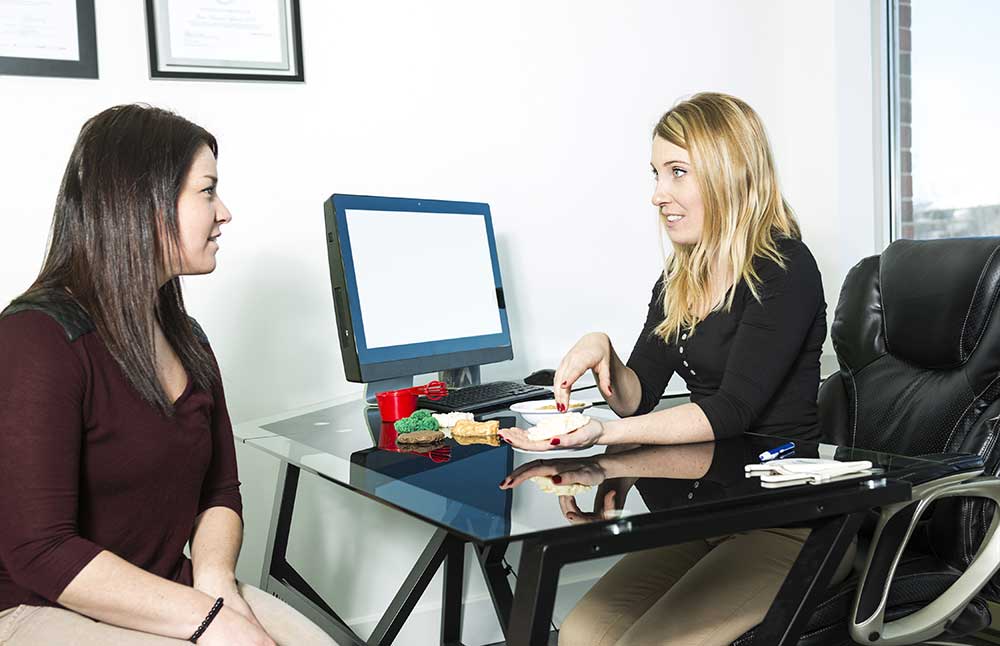Disclaimer: The information on our website is provided for general information purposes only. We make no representations or warranties of any kind, express or implied, about the completeness, accuracy, reliability, suitability or availability with respect to the website or the information contained on our website for any purpose. Any reliance on such information is therefore strictly at your own risk and we are not liable for any damages or losses arising out of or resulting from your reliance on any information contained on our website.
If you are interested in health, wellness, nutrition, and educating people, you may enjoy a career as a dietetic technician. Dietetic technicians assist dietitians in a variety of ways to include planning and creating meals for clients, teaching people about nutrition, and assisting with any nutritional program a dietician may be running. Dietetic technicians may also be called diet assistants, dietary aide, or dietary manager. Watch a video to learn what a dietetic technician does:
How to Become a Dietetic Technician

The Academy of Nutrition and Dietetics states that nutrition and dietetic technicians, or registered (NDTRs), must complete a nutrition and dietetic technician program by the Accreditation Council for Education in Nutrition and Dietetics (ACEND®) of the Academy of Nutrition and Dietetics. You’ll need to have accomplished a two-year associates degree from an accredited university and complete their program in order to gain the registered credential. Some dietetic technicians use this profession as a stepping stone on their way to becoming a dietician.
Job Description of a Dietetic Technician
Dietetic technicians play a crucial role in the healthcare and nutrition industry, working alongside registered dietitians in various settings like hospitals, nursing homes, assisted living facilities, and schools. Beyond meal planning and preparation, they actively engage in client education, offering valuable insights on nutrition, meal planning, and food preparation techniques.
In their collaborative efforts with dietitians, they take on the important responsibility of monitoring a patient’s dietary intake, carefully observing and documenting any issues or concerns they may encounter. Through their hands-on involvement and guidance, dietetic technicians contribute significantly to promoting better health and dietary choices among their clients, ultimately enhancing the quality of care in these diverse healthcare environments.
Dietetic Technician Career Video Transcript
There’s an expression – “you are what you eat.” And that’s certainly true when it comes to good nutrition. Dietetic technicians help patients understand the important connection between food and health. Under a dietitian’s supervision, they assist with food service and nutritional programs. They plan menus and prepare meals following nutritional standards and recipes that ensure patients’ individual needs are met.
Dietetic technicians observe and gather information from a patient, so a registered dietitian or doctor can determine the patient’s needs. They also counsel people about the food choices they should make to prevent or manage disease, such as cutting back on sugar for patients with diabetes. Most work in a variety of healthcare settings, including hospitals, nursing homes, and assisted living facilities; or for state and local government. In all settings, dietetic technicians follow guidelines established by the government and medical experts.
Most employers prefer candidates with an associate’s degree from an accredited dietetics or nutrition program, though qualifications may vary. While everybody needs to eat, dietetic technicians help those with special nutritional requirements to improve their health through informed choices.
Article Citations
Bureau of Labor Statistics, U.S. Department of Labor, Occupational Outlook Handbook, Dietetic Technicians.
National Center for O*NET Development. 29-2051.00. O*NET OnLine.
Academy of Nutrition and Dietetics. Nutrition and Dietetic Technician Registered Fact Sheet. Academy of Nutrition and Dietetics.

